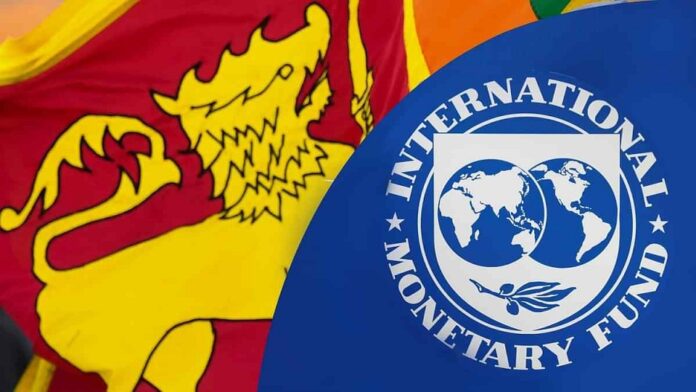Sri Lanka is expected to receive the first tranche of funds from the International Monetary Fund (IMF) in 2 days, Peter Breuer, Chief of the Debt Capital Markets Division, Monetary and Capital Market Department at the IMF said.
He said Sri Lanka has incorporated a number of measures to commence the reforms process, as agreed upon with the IMF.
Breuer also said that steps are being taken to make the Central Bank of Sri Lanka more independent.
The IMF also said that the disbursement of the funds under the agreement with Sri Lanka, will be tied to reviews of Sri Lanka’s economic policies, which will take place every 6 months.
The IMF Executive Board approved a 48-month extended arrangement under the Extended Fund Facility (EFF) of SDR 2.286 billion (about US$3 billion) to support Sri Lanka’s economic policies and reforms.
Sri Lanka has been facing a severe economic crisis as a result of past policy missteps and economic shocks. We have been deeply concerned about the impact of the crisis on the Sri Lankan people, particularly the poor and vulnerable groups, and about the economic costs of the delay in the country’s access to external financing.
The Board approval marks an important step towards the resolution of the crisis—Sri Lanka will immediately receive an initial disbursement of about US$330 million from the EFF arrangement, which is expected to catalyze new external financing including from the Asian Development Bank and the World Bank.
Commendably, Sri Lanka has already started implementing these challenging policy actions. It is now essential to continue the reform momentum under strong ownership by the authorities and the Sri Lankan people more broadly.
The authorities have committed to fundamentally improve public financial management and strengthen the anti-corruption legal framework in line with the United Nations Convention against Corruption.
The economic impact of the reforms on the poor and vulnerable needs to be mitigated with appropriate measures. In this regard, we welcome the authorities’ firm commitment to strengthen social safety nets, including through a minimum spending floor, well-targeted spending through a new Social Registry, and establishment of objective eligibility criteria.
Tax reforms under the program are designed to be progressive, that is, ensuring greater contributions from high-income earners. Efforts to increase tax revenues should be pursued in a growth-friendly manner while protecting the poor and most vulnerable.
Sri Lanka’s public debt, at 128 percent of GDP as of end-2022, is unsustainable. The country is in arrears to all its external creditors.
IMF Board approval of assistance to Sri Lanka required assurances from official bilateral creditors that they will provide debt relief and/or financing to restore debt sustainability consistent with the program, as well as an assessment that the authorities are making good faith efforts to reach a collaborative agreement with private creditors.
It is now important for the Sri Lankan authorities and creditors to closely coordinate and make swift progress towards a debt treatment that restores debt sustainability under the EFF-supported program.
The President’s recent open letter to official bilateral creditors includes commitments to transparency and comparability of treatment for all external creditors, which should help facilitate this process. IMF staff will continue to assist the authorities with creditor coordination in line with the IMF’s policies.
